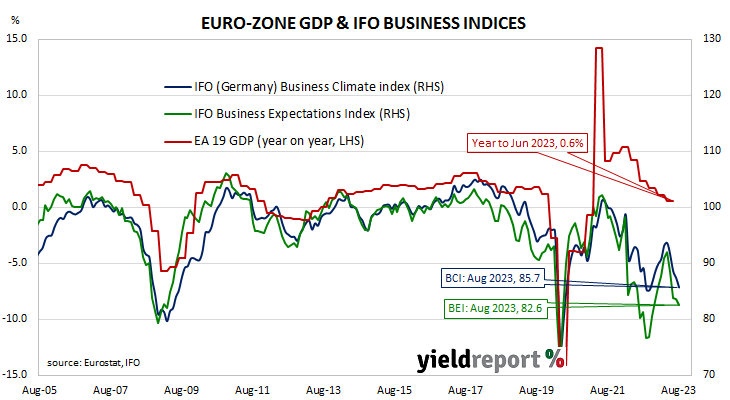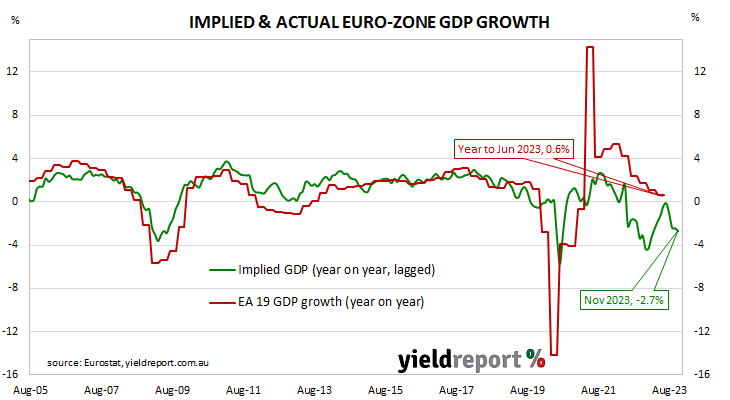ifo business climate index falls again in August, below expected figure; “companies are increasingly pessimistic”; current conditions index, expectations index both down; expectations index implies euro-zone GDP contraction of 3.0% in year to November.
Following recessions in euro-zone economies in 2009/2010, the ifo Institute’s Business Climate Index largely ignored the European debt-crisis of 2010-2012, mostly posting average-to-elevated readings through to early-2020. However, the index was quick to react in the March 2020 survey, falling precipitously. Readings through much of 2021 generally fluctuated around the long-term average before dropping away in 2022.
According to the latest report released by ifo, German business sentiment has had a fourth consecutive month of decline after increasing in the six months prior to May. August’s Business Climate Index recorded a reading of 85.7, below the generally expected figure of 86.8 as well as July’s final reading of 87.4. The average reading since January 2005 is 96.5.
“Moreover, companies are increasingly pessimistic about the months ahead,” said Clemens Fuest, President of the ifo Institute. “The German economy is not out of the woods yet.”
German firms’ views of current conditions and their collective outlook both deteriorated again. The current situation index fell from July’s figure of 91.4 to 89.0 while the expectations index declined from 83.6 after revisions to 82.6.
German and French long-term bond yields finished higher on the day. By the close of business, the German 10-year yield had gained 5bps to 2.56% while the French 10-year OAT yield finished 3bps higher at 3.08%.
The ifo Institute’s business climate index is a composite index which combines German companies’ views of current conditions with their outlook for the next six months. It has similarities to consumer sentiment indices in the US such as the ones produced by The Conference Board and the University of Michigan.
It also displays a solid correlation with euro-zone GDP growth rates. However, the expectations index is a better predictor as it has a higher correlation when lagged by one quarter. August’s expectations index implies a 2.7% year-on-year GDP contraction to the end of November.



